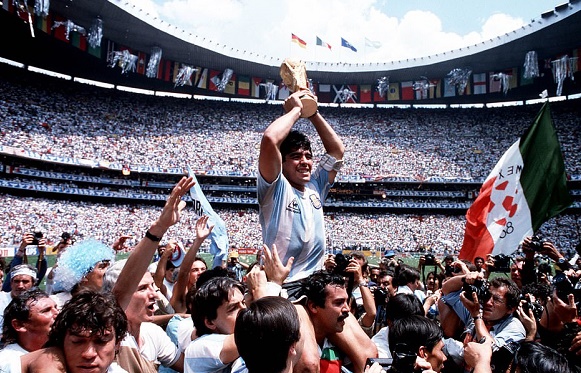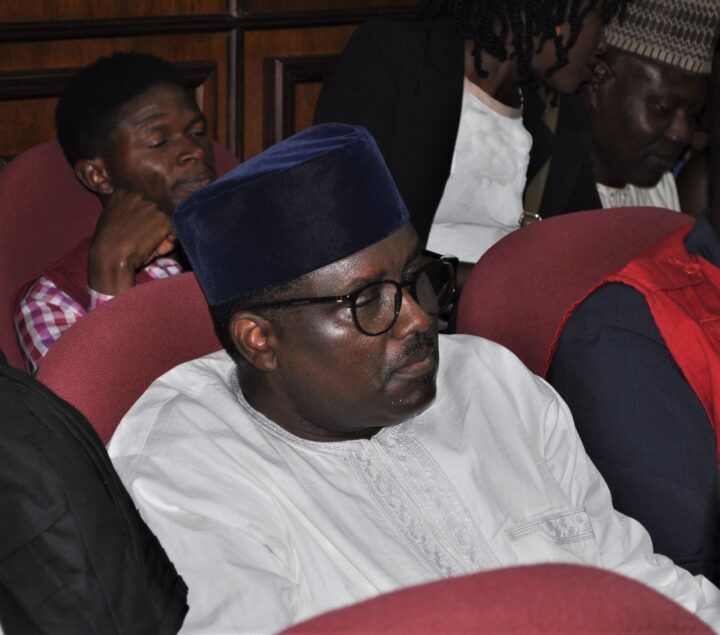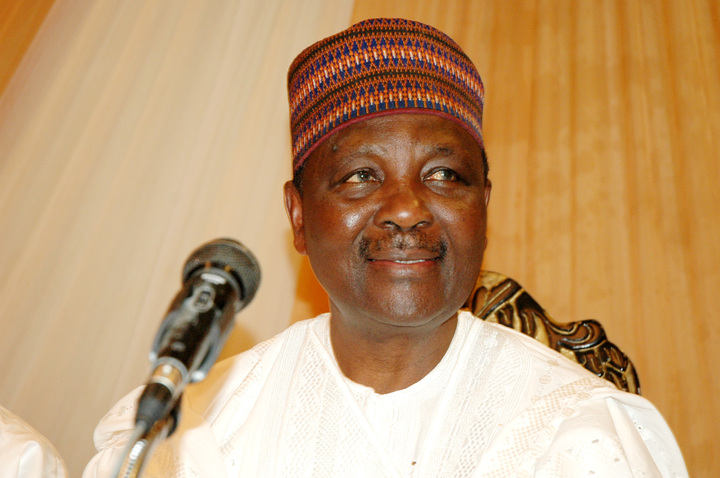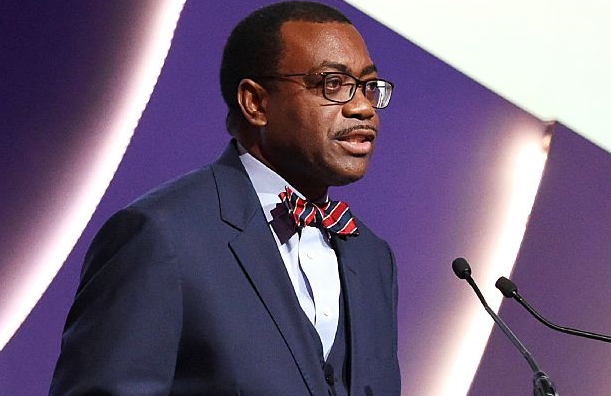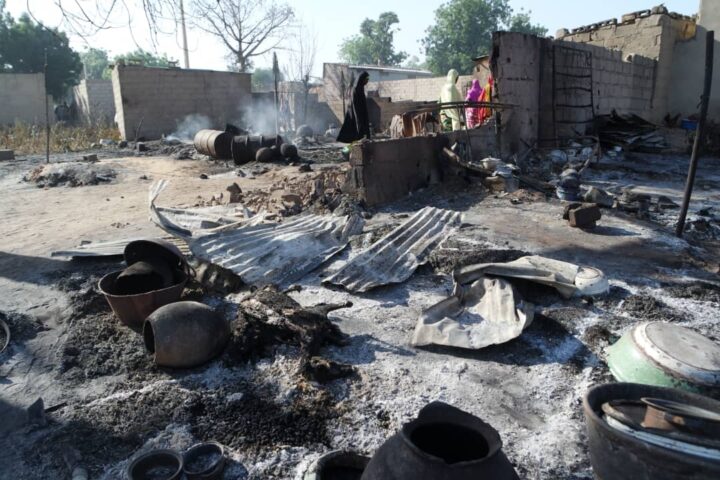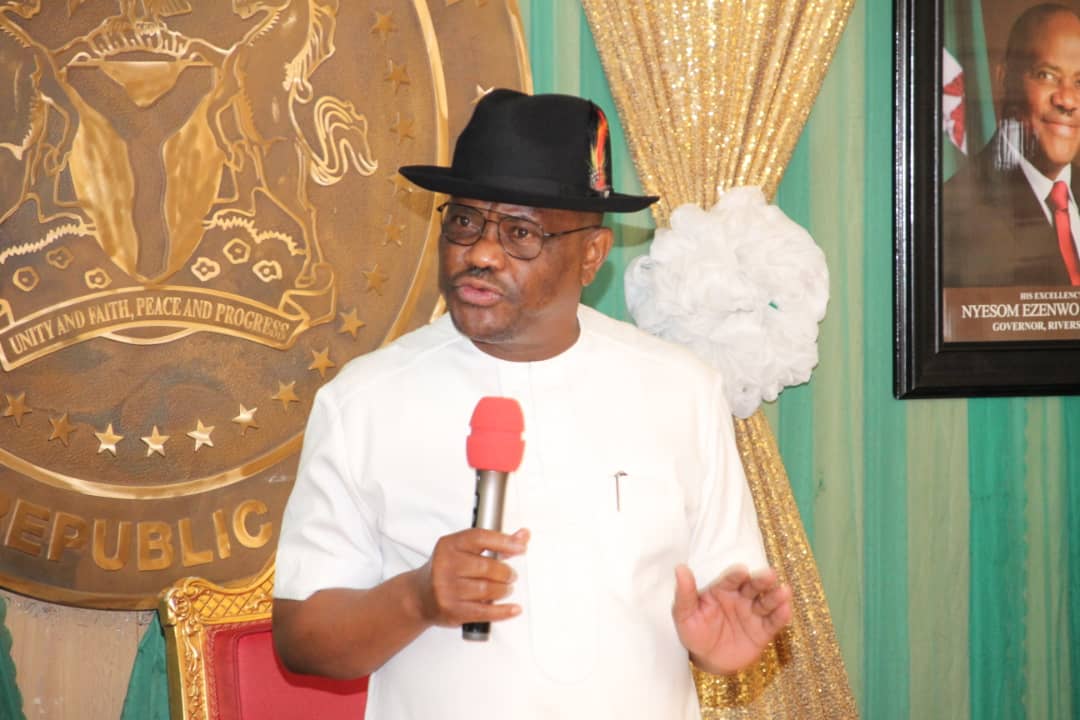OBITUARY: Maradona, Argentina's football icon who died a happy man -- but with one regret
On Wednesday, news of the demise of Diego Maradona, Argentine ace footballer, broke — sending the football landscape into a frenzy. He breathed his last at 60 after suffering cardiac arrest while recovering from a surgery he underwent earlier in November. It was the end of an era. Those who witnessed the heroics of the diminutive football legend during his heydays would agree he was a delight to watch.
He was in a class of his own. Naturally gifted, skillful, energetic and flamboyant in the field of play, Maradona was a quintessential example of a complete attacking footballer. He aced his era with towering legacies that made Argentina a football powerhouse capable of ripping any team apart. His seemingly surreal abilities on the field made many to christen him “El Pibe de Oro” — which means ‘The Golden Boy” in English — during his playing days.
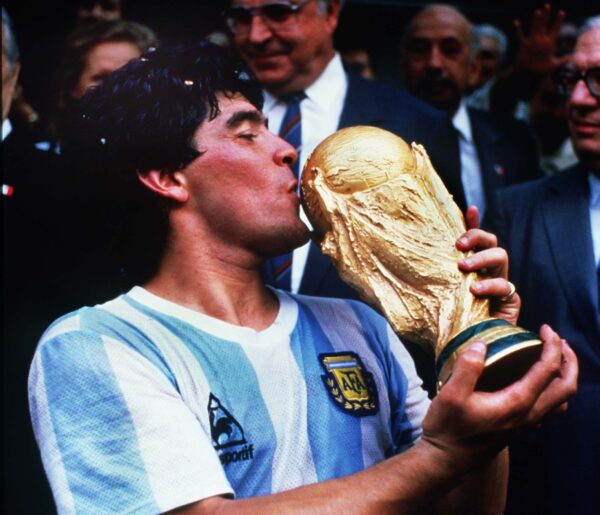
BORN POOR, ‘SAVED’ BY FOOTBALL
Born to a poor family in the shanty town of Villa Fiorito in Buenos Aires on October 3o, 1960, Maradona — the first son after four daughters — had poverty starring at him in the face. But his innate football potentials paved way for him.
Advertisement
At eight, he had already started pulling the strings at Buenos Aires while playing at Estrella Roja, his neighbourhood football club, where he was eventually spotted by a talent scout. He had in 1960 described football as his “salvation” which helped him to raise his family out of poverty.
CLUB HERO — FROM BOCA JUNIORS TO BARCELONA, NAPOLI…
Maradona’s rise to prominence was nothing but phenomenal. He made his professional debut for Argentinos Junior — about 10 days to his 16th birthday — on October 20, 1976, to become the youngest player in the history of Argentine Primera División.
Advertisement
The gifted footballer also spent five years with Argentinos Juniors, scoring 115 goals in 167 appearances before landing a record deal to join Boca Juniors — a deal estimated at $4 million — in 1981.
Maradona continued his breathtaking football record at Boca Juniors wherein he won the domestic league with the club in his first season. His stay at the team was, however, short-lived as he departed to join Barcelona, a Spanish team, in 1982 for another world transfer record.
Like in his previous clubs, the iconic footballer established himself as fans’ favourite at Barcelona, proving a formidable force as the Catalan giants edged fierce rival Real Madrid to clinch the Copa del Rey in 1983. He was also instrumental in Barcelona’s victory over Athletic Bilbao in the Spanish Super Cup the same year while he also put up a spectacular display in the El Clásico games against Real Madrid.
![Maradona at his Napoli unveiling [Credit: Alfredo Capozzi]](https://www.thecable.ng/wp-content/uploads/2020/11/diego-maradona-napoli-e1606355577381.jpg)
Advertisement
It didn’t take Maradona long before he again established himself as the go-to-man who would eventually shatter the club’s history with an array of honours. The ace footballer led the club to its first-ever Serie A victory in 1986-1987 season before winning their second league title in 1989-90.
Other titles won during Maradona’s stay at Napoli included the Coppa Italia, the UEFA Cup and the Italian Supercup. His days at Napoli were, however, marred by strings of controversies including the use of cocaine which eventually earned him a 15-month football ban, and led to his eventual departure from the club in 1992.
After the dust of his drug ban settled, Maradona had short stints at Sevilla, Newell’s Old Boys before a return to Boca Juniors, his childhood club, in 1994.
In an interview with France Football, the Argentine football maestro had recounted how he braced the odds as a South American to pursue his dreams in Europe.
Advertisement
“South American footballer to go and play over there. Me, I took a risk. I went far away and I put everything into it, that is how I have always done things. That is my way of being,” he had said.
‘HAND OF GOD AND GOAL OF THE CENTURY’
Advertisement
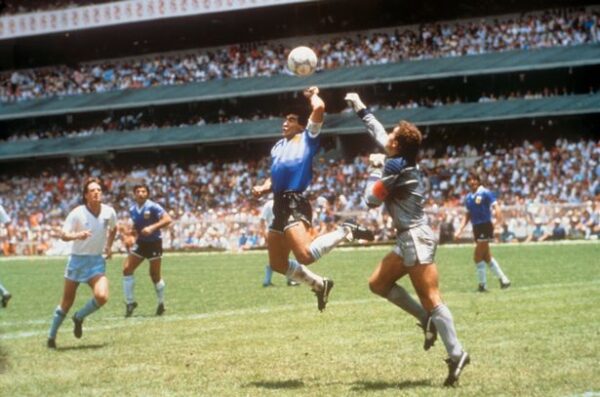
Maradona’s football exploits would be incomplete without a mention of his achievements with the Albiceleste of Argentina at the 1986 World Cup. Seven games played, 53 take-on completed, 5 assists and 5 goals; Maradona was indisputably the driving force behind Argentina’s second World Cup win in 1986 over West Germany.
The former Barcelona star took the world by storm at the quarter-final of the tournament when he scored twice to ensure Argentina defeated England 2-1 to advance to the next stage of the competition.
Advertisement
His two goals — the first with an arm in what is now known as the infamous ‘Hand of God’ and the second wherein he dribbled past several players, which was also dubbed ‘Goal of the Century’ — have become an indelible chapter in the annals of history, the knowledge bank of all ages.
By the end of the tournament, he emerged the second-highest scorer with five goals only behind England’s Gary Lineker who had 6 while he also topped the assists chart. Maradona also led the Albiceleste to a second consecutive World Cup final in 1990, but this time, they lost to West Germany.
Advertisement
In his autobiography, Maradona had bragged about first getting away with the ‘Hand of God’, saying: “You’re trying to reach the ball and the hand moves independently.”
DRUG ADDICTION AND HEALTH ISSUES
Maradona’s prolific playing days were riddled with several controversies including the use of cocaine and alleged ties to crime syndicates. He was reportedly linked to the Camorra crime syndicate – the Naples mafia – while his abuse of illegal substance started in the mid-1980s during his stay at Barcelona and would later become an addiction which spanned most part of his career. The football star was handed his first major punishment in 1991 after he was banned by Napoli for 15-month for testing positive for cocaine.
During that period, he was also arrested in Buenos Aires and charged with possession and distribution of cocaine.
After the ban — which started in April 1991 and ended in June 1992 — he was recalled back into the Argentina national team for the 1994 World Cup in USA. But not long after that, he was enmeshed in another drug scandal in the group stage of the tournament during which he embarked on a wild celebration after scoring against Greece.
The ex-Napoli man thereafter played what would be his last game for Argentina against Nigeria, with the Albiceleste defeating the Super Eagles by 2-1. He was consequently expelled after he tested positive for five variants of ephedrine, a banned substance, bringing his international career to a halt.
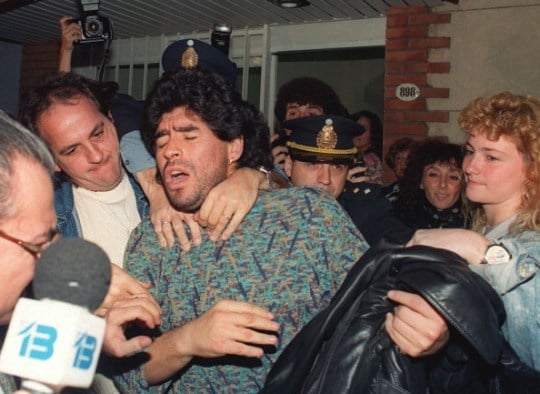
His playing career would also come to an end in 1997 after he failed another drug test — a record third time in six years.
“I gave my opponents a big advantage due to my illness. Do you know the player I could have been if I hadn’t taken drugs?’ ‘I am 53 going on 78 because my life hasn’t been normal. I’ve lived 80 [years] with the life I’ve gone through,” he was quoted as saying in 2014.
Maradona, who scored 259 goals in 491 matches, retired in 1997. Shortly after retirement, he started adding weight to the point of being obese. In 2005, he underwent gastric bypass surgery after which he was treated for hepatitis and alcohol-related illness at a hospital in Buenos Aires two years later.
MARADONA OPENED UP ON WHAT HE REGRETTED THE MOST
When Maradona marked his 60th birthday on October 30, the ace footballer least envisaged that he would die a few weeks after. In his final interview with Clarin, the football star explained that his only regret was not having his parents around.
“I went and I am very happy. Soccer gave me everything I have, more than I ever imagined. And if I hadn’t had that addiction, I could have played a lot more. But today that is past, I am fine and what I regret the most is not having my parents. I Always make that wish, one more day with Tota but I know that from heaven she is proud of me and that she was very happy,” he said.
During the interview, Maradona also talked about his wish for Argentina amid the coronavirus pandemic ravaging the world.
“My wish is that this pandemic passes as soon as possible and that my Argentina can move forward. I want all Argentines to be well, we have a beautiful country and I trust that our President will be able to get us out of this moment,” he added.
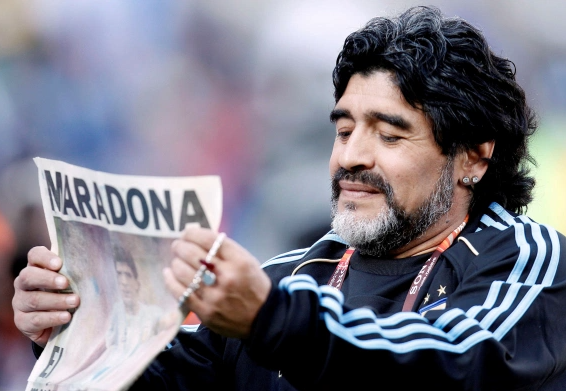
“It makes me very sad when I see children who do not have enough to eat, I know what it feels like in the belly when you do not eat for several days and that cannot happen in my country. That is my wish, to see the Argentines happy, with work and eating every day.”
Maradona tied the knot with Claudia Villafañ, his long-time fiancée, at Buenos Aires in 1984 with the union blessed with two daughters namely; Dalma Nerea and Gianinna Dinorah. The couple, however, divorced in 2004.
Despite his many wrongdoings, Maradona remained a hero in Argentina and one of the most potent challengers to Pele’s mantle of the greatest footballer of all time.
